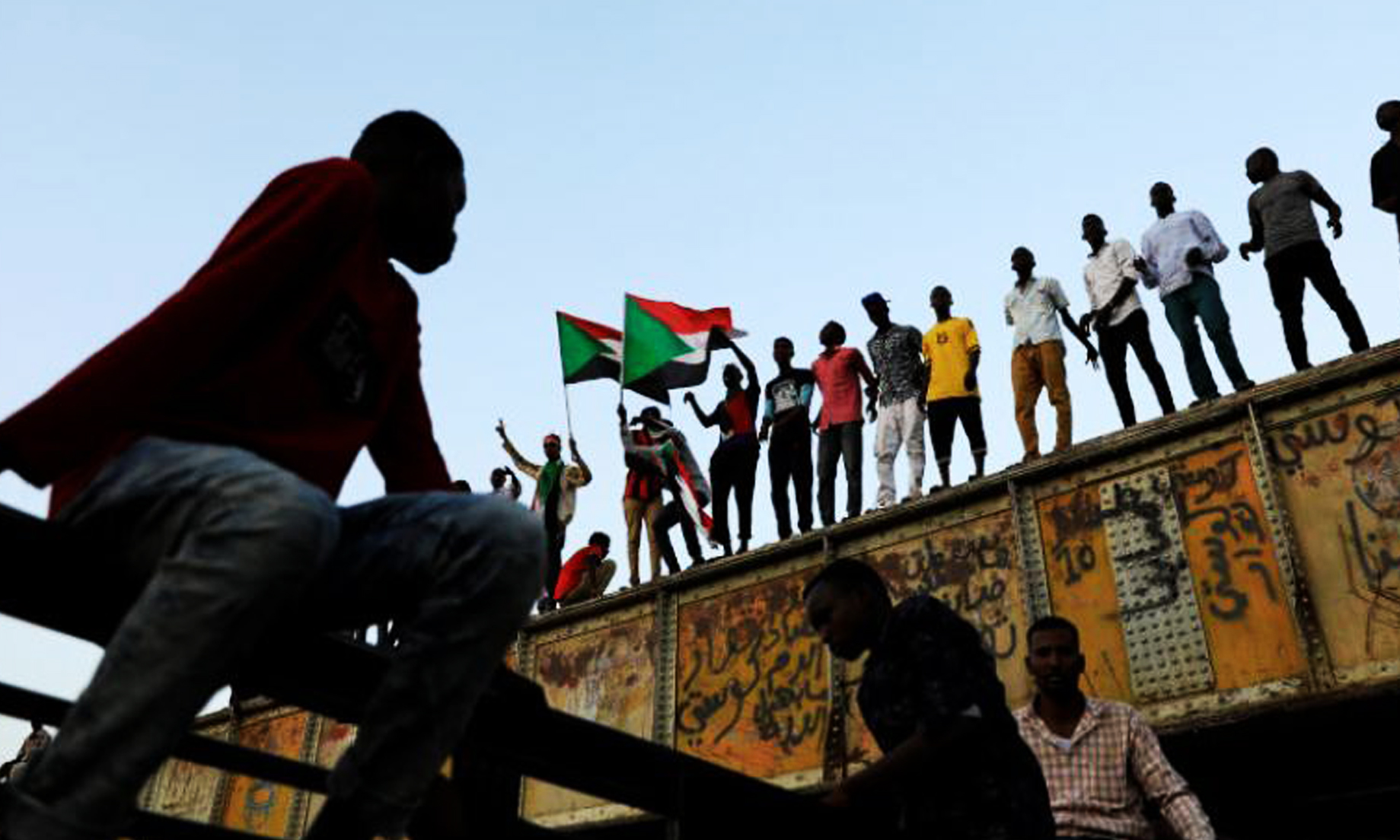KHARTOUM, June 4 (NNN-AFRICANEWS) – The death toll in Sudan has gone past the dozen mark with the official putting the deaths at thirteen citing protest leaders.
Security forces were reported to have discharged live rounds in an early morning raid on their camp outside the army headquarters, sparking off yet even more protests in Omdurman, the twin city of Khartoum.
Live footage broadcast by Arab television stations showed chaotic scenes, with protesters running away as black smoke rose from tents apparently torched by the raiding force.
The protesters holding a sit-in in front of the army general command are facing a massacre in a treacherous attempt to disperse the protest.
Activists described the raid as an attempt to disperse protesters demanding civilian rule.
“The protesters holding a sit-in in front of the army general command are facing a massacre in a treacherous attempt to disperse the protest,” the main protest group said in a statement, urging the Sudanese people to come to their aid.
Widespread condemnation of deadly raid
“Extremely concerned by the heavy gunfire I’ve been hearing over the last hour from my Residence and reports that Sudanese security forces are attacking the protest sit-in site resulting in casualties.
“No excuse for any such attack. This. Must. Stop. Now,” the British Ambassador in Khartoum said.
The British Foreign Secretary, Jeremy Hunt, has also issued a statement on the incident: “Condemn the attack on protestors by Sudanese security forces. This is an outrageous step that will only lead to more polarisation and violence.
“It will not help Sudan build the future the people are demanding. The Military Council bears full responsibility for this action and the international community will hold it to account,” he said in two tweets.
The United States Embassy in Khartoum also joined in the condemnation of the incident calling for the attacks to stop. “Responsibility falls on the TMC,” they said in a tweet.
TMC refers to the Transitional Military Council which took power after deposing long serving Omar Al-Bashir as president in April this year.
Protests in Omdurman
In Omdurman, thousands of Sudanese protesters blocked roads with stones and burning tyres.
A witness told Reuters there were no security forces in the area as young men and women blocked main streets and side roads across Omdurman, which sits on the other side of the Nile river from Khartoum.
A Reuters witness saw troops wielding batons deploy in central Khartoum and close roads, apparently to try to block people from reaching the protest site.
Nile bridges that connect various parts of the Sudanese capital have also been blocked.
Stalled negotiations
The violence comes amid a persistent deadlock in talks between protesters and Sudan’s military rulers over demands to hand over power to civilians.
The Transitional Military Council (TMC), which assumed power in April when the military ousted President Omar al-Bashir after three decades in office, has offered to let protesters form a government to run the country but insists on maintaining overall authority during an interim period.
Demonstrators want civilians to run the transitional period and lead the North African country of 40 million to democracy.
Reactions to military violence
The TMC has repeatedly said it would not use force to disperse the protesters, often comprising thousands of young men and women who take turns camping outside the Defence Ministry.
No statement about the violence has yet been issued by the TMC.
Stability in Sudan is crucial for a region grappling with violence that stretches from the Horn of Africa to Libya.
The British Ambassador in Khartoum said in a message on his Twitter account he was “extremely concerned by the heavy gunfire I’ve been hearing over the last hour from my Residence and reports that Sudanese security forces are attacking the protest sit-in site resulting in casualties”.
“No excuse for any such attack. This. Must. Stop. Now,” he wrote.
The sit-in had become the focal point of protests that started in December, sparked by a severe financial crisis that caused cash shortages and bread price hikes.
Sudan, one of the largest countries in Africa, has long been on a U.S. list of countries that support terrorism, which has hampered foreign investments.
NNN-AFRICANEWS



